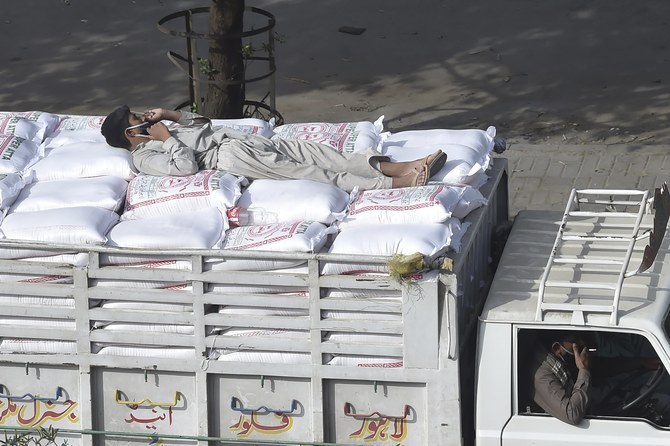ISLAMABAD: The Pakistan government on Monday increased its wheat support price, the rate at which the government procures the commodity from farmers, to Rs1,600 per 40 kilograms from Rs1,400, to boost yield and meet the commodity’s expected shortage next year.
The increase in the support price comes as a wheat shortage of 1.5 million metric tons this year has pushed the commodity’s price up to Rs2,200 per 40 kilograms in the local market.
The government fixes the wheat support price every year to procure the produce from farmers, which it then releases to flour mills at subsidized rates so it can regulate staple price in the local market.
“The support price mechanism plays a pivotal role in boosting wheat production as it stabilizes the market and increases profitability of the farmers,” the Economic Coordination Committee of the Cabinet (ECC), an executive federal body that takes economic decisions, said in a statement on Monday.
In July, the government offered tax incentives for wheat imports to meet shortages and the ECC was informed that one million metric tons of imported wheat would be secured by January 2021 through international bidding.
Wheat is one of the main agricultural crops of Pakistan, with around 80 percent of farmers growing it on an area of about 9 million hectares — close to 40 percent of the country’s total cultivated land.
But for the last few years, experts say, Pakistan has faced wheat shortages driven mainly by rapid population growth and climate change.
The commodity is also an important food staple in the South Asian nation of 220 million and its shortage and price hikes lead to public anger and protests against the government. Prime Minister Imran Khan’s government has been under pressure for the past two years for being unable to maintain wheat flour prices in the market, resulting in protests by opposition parties and the public.
By enhancing the wheat support price by Rs200 per 40 kilograms, the government believes it can help farmers boost yield and increase their profits. But farmers have rejected the move, calling it a political gimmick.
“The government should have subsidized the inputs like fertilizers and seeds to help farmers and increase the wheat production instead of trying to play for the gallery,” Mian Muhammad Umair Masood, secretary-general of the Pakistan Kissan Ittehad, told Arab News.
Food security experts and economists say the increase in support price would result in urban food inflation, urging the government not to be involved in procurement.
“In the long term, the government has to come out of this procurement business,” Dr. Abid Qaiyum Suleri, executive-director at the Islamabad-based Sustainable Development Policy Institute, told Arab News. “The subsidy which is provided through the minimum support price needs to be passed on to farmers directly to reduce their cost of production.”
















